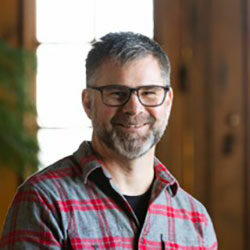- November 1-6, 2024
- In-Person Program
Program I: Taking Refuge in the Buddha & Dharma
This program has two components:
Component one examines the archetype of Buddha as a representation of one’s own awakened potential, and as a starting point to consider how those of us practicing today might find in the legacy and teachings of the historical Buddha time-tested guidance to cultivate our own mind. Examples will also be drawn from the spiritual biographies of other notable practitioners. This component will also look to the story of the Buddha’s encounters with aging, sickness, and death in order to better understand their relationship to aspiration and motivation.
Component two explores the ideal of living in accordance with the dharma, described in the suttas as “subtle and hard to see.” How do we live and practice in accordance with something subtle and hard to see and not yet fully realized? This component explores the whole of the Dharma as an integrated system of practice, study, and personal reflection that leads to a way of seeing and perceiving self, others, and the world around us, which leads to greater freedom. Though we “study” the Dharma this program will ultimately support students to recognize their own direct experience as the greatest source of insight.


